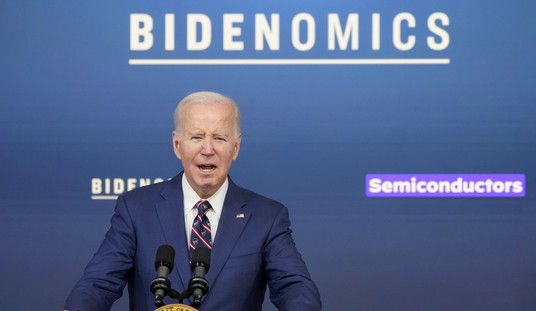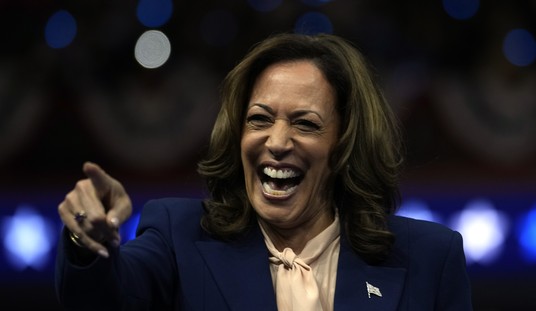It was once said, during the time when Maine’s governor’s race was conducted almost two months earlier than the November presidential race, that “as Maine goes, so goes the nation.” Will that be the case this year with North Carolina?
There is news this week that Democrats will invest a stunning $9.1 million to back first-term incumbent Senator Kay Hagan in North Carolina. Hagan is being challenged by Republican state House Speaker Thom Tillis. This occurs just after the latest Washington Post Election Lab survey rates Hagan’s chances of re-election at 99%. Clearly, national Democrats don’t see the North Carolina race as in the bag. The Washington Post’s model favors Republicans to pick up seats in South Dakota, West Virginia, Montana, Iowa, Arkansas, Alaska, and Louisiana — enough to win a majority with 52 Senate seats. Pretty much all election analysts consider the first three seats in this list as safe for Republicans, and the other four as competitive. If analysts are greatly underestimating GOP chances in North Carolina, then maybe the tides are rolling in for the Republicans this year.
In fact, Thom Tillis had led in the last three polls in North Carolina. This, more than anything, explains the new infusion of cash and the big new ad buy by Democrats. The money will be used at the start for extremely harsh attack ads directed at Tillis and the policies of state government. The bet is that North Carolinians may be as or more unhappy with their state government than they are with Barack Obama and Harry Reid.
Hagan comes off as something of an irrelevance in the whole matter, though the ads are designed to change the subject from her heavily criticized vote for Obamacare, which, given its filibuster-proof passage with 60 votes, required every Democratic senator to support it. Republicans will continue to aim their fire at Obama, Obamacare, and, given recent national polls, the president’s foreign policy record. Democrats will, as they have throughout the last decade, try to scare voters into thinking that Republicans are mean to women, children, African Americans, Hispanics and any other group they can persuade to see themselves as victims..
The intrusion of foreign policy into the 2014 midterms is clearly something that was unanticipated by the administration. When Obama ran for re-election in 2012, the Benghazi attack on September 11th threatened to unravel a clearly designed narrative that America had withdrawn its forces abroad, ending a near decade of death and heavy spending on military matters, and killed Osama bin Laden, addressing the major remaining terror threat from al-Qaeda. So now it was time to turn inward to address our domestic challenges. The administration’s lies and spin — that the Benghazi deaths were caused by a reaction by foreign mobs to attacks on Islam in some unseen film by an unknown filmmaker — were preposterous. But they were gobbled up as tasty snacks by many in the major media, some of whom (e.g., Candy Crowley of CNN) might as well have been on the administration’s payroll.
The last 18 months have put to rest any illusions that we have reached “the end of history” or that America can safely retreat, rely on multilateralism, significantly reduce the size of the military, and rely on Obama’s new grand strategy of “don’t do anything stupid” along with its corollary, “no boots on the ground, and especially not in Iraq.”
Now, former Secretary of State Hillary Clinton has laid down her marker for the general election in 2016, ignoring any risk that her tougher line on foreign policy will antagonize the left in the Democratic Party (far stronger now than in 2000) and deny her the nomination one more time. In an interview with Jeffrey Goldberg in The Atlantic, Clinton argues that there is no grand strategy coming out of the White House, and a lot of caution, which could signal to both friends and foes an absence of resolve.
Clinton argues that we should have armed the opposition in Syria when we could have influenced who the opposition was, that we underestimated ISIS and withdrew too quickly and completely from Iraq, that we should not agree to allow Iran to maintain its enrichment capability, and that we should not behave as a neutral party in the war between an ally, Israel, and a genocidal terrorist group like Hamas.
Hillary Clinton is sounding a bit like Bill Clinton but even more like Joe Lieberman and John McCain. She is reflecting an older Democratic Party of Kennedy and LBJ, rather than the Carter/Obama/Oliver Stone approach that is now ascendant. The Obama administration thinks America has done more harm than good overseas, and that we should now do very little, other than engage with enemies who hate us (with good reason, of course) .
This approach is now the toast of the left — from MSNBC’s Rachel Maddow to the New Yorker’s Steve Coll, both of whom are still obsessing about war for oil in Iraq, even when tens of thousands of defenseless members of non-Muslim ethnic groups are on the verge of vicious slaughter by the world’s worst jihadists. Blame Dick Cheney and Halliburton for all this. And some on the left are uneasy this week, since they hoped to never hear about Iraq any more, and only needed to become apoplectic about civilian casualties if they were in Gaza and Israel could be blamed.
The bottom has fallen out of the public’s rating of the administration on foreign policy. The most recent Marist survey gives Obama a 32% approval rating for his foreign policy , almost ten points below his overall approval score.
Some might think that the president’s greatest concern is that the situation in Iraq could detract from golf outings and fundraisers (now at near 200 and 400, respectively, since he took office). Who would have thought the president could play nearly as many rounds a year as Tiger Woods since his first inaugural?
Nasty as this comparison is, it reflects a growing unease among Americans that the president is disengaged, or has largely given up. When things are no longer easy (filibuster-proof majorities are gone, the seas are still rising, the earth is not healing), and he has no ability or inclination to work with Congress (which might involve compromise), another 18 holes or an attack on Republican “straw men” to well-heeled trial lawyers, investment bankers, or environmentalist donors might well seem appealing.
Where is the president likely to get hurt the most by his new foreign policy woes? It is almost certain that the slow erosion of support among Jewish voters for Democrats will continue. This will certainly be the case for those concerned about the future of Israel and U.S.-Israel relations . The U.S. House race in Illinois’ heavily Jewish 10th District between incumbent Democrat Brad Schneider and Republican challenger and former Congressman Bob Dold could well turn on whether a few thousand Jewish voters signal their disgust with Obama’s lack of support for Israel. Schneider beat Dold by only 1% in 2012.
Close House races in other suburban areas with significant concentrations of Jewish voters could also be impacted. Among Senate races, the drawdown of the military and the perception of foreign policy weakness could be a negative for Hagan in North Carolina, a state with many military personnel, as well as for other Democratic incumbents in other southern states — Pryor in Arkansas (facing combat veteran Tom Cotton) and Landrieu in Louisiana in particular.
There is some evidence that Americans have reacted to the decade of war after 9/11 with more willingness for the country to sit back and be less assertive. The two wars in Iraq and Afghanistan took a toll among those killed and wounded and they were costly. The success so far of Kentucky Senator Rand Paul, whose libertarian approach to foreign affairs is not that different in terms of “resolve” (or lack thereof) from Obama’s, suggests he thinks there is an opening among more isolationist Republicans for the 2016 race, especially if everyone else running is more hawkish. This is not the first time (Vietnam another) that American presidents (and Congress as well ) have pulled in their horns, sensing a national exhaustion after long conflicts.
What is interesting is that Hillary Clinton appears to believe differently — namely that a president is a leader, and leadership requires building the case for why resolve and engagement abroad matter and explaining the importance of understanding real threats, such as jihadist Islamists. Clinton has clearly decided that she will run as a traditional Democrat on foreign policy, not one who awaits the “peace dividend.”
It is unlikely that President Obama, even after reading Clinton’s comments, will be rethinking his own vision in the sand trap on 11.









Join the conversation as a VIP Member